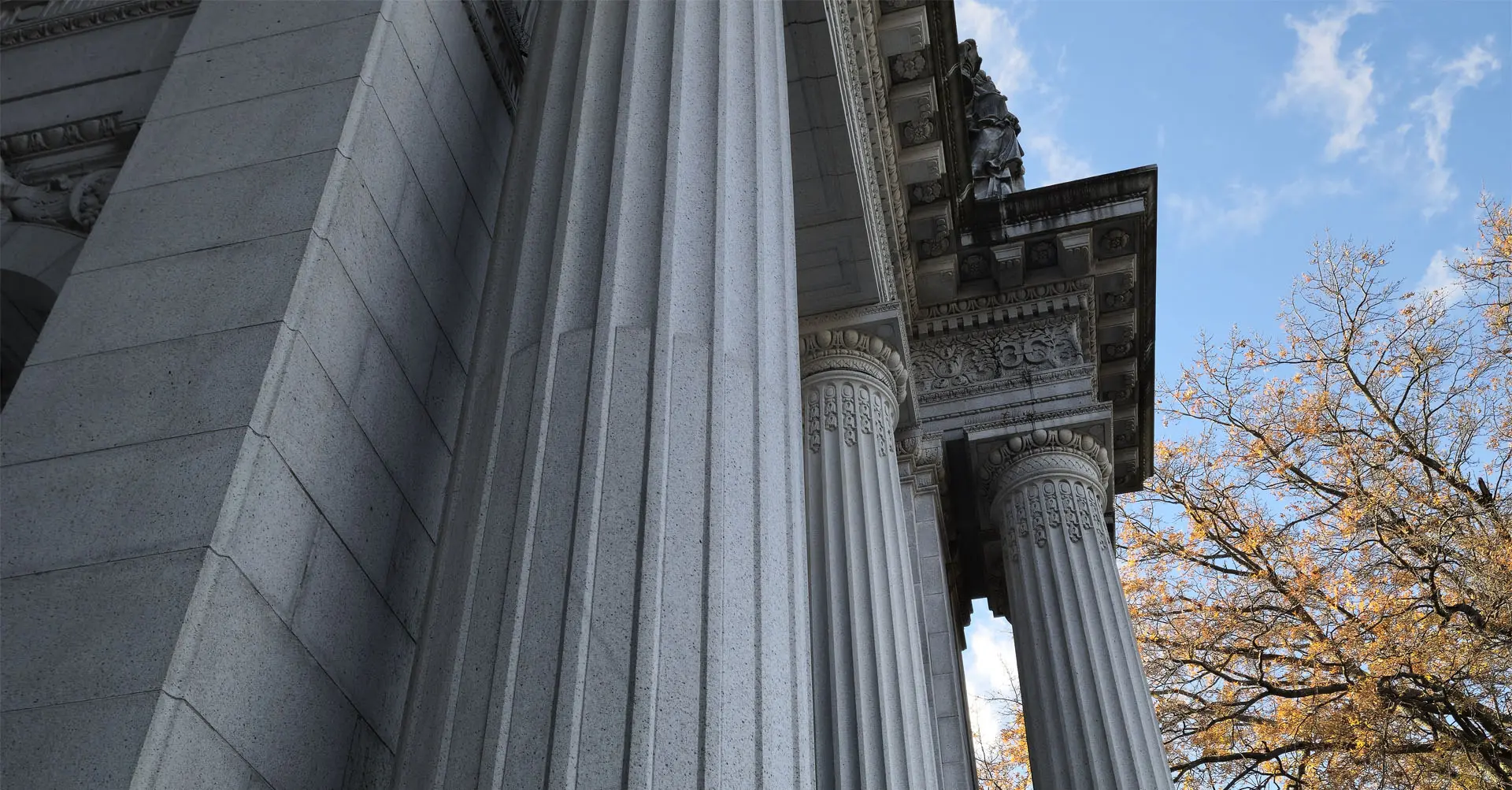What is an appeal?
An appeal is the process of asking a higher court to review a lower court’s decision. It is a way to challenge a legal determination.
What is the difference between an appellant and an appellee?
An appellant is the party that lost at trial and is seeking to challenge that legal judgment. An appellee is the party that succeeded at trial and is defending the judgment against the appeal.
what is the difference between a trial and an appeal?
A trial focuses on pleading claims, satisfying burdens of proof by presenting documentary and testimonial evidence, and convincing a factfinder of your position.
By contrast, an appeal focuses on raising legal and factual errors in the trial court’s proceedings through written briefs and oral argument.
What is an appellate brief?
An appellate brief is a legal document filed in an appellate court that outlines the legal and factual issues of a party seeking to overturn or uphold a lower court’s decision. This is the primary tool to make arguments to appellate judges and typically includes a statement of issues, statement of facts, legal arguments, and a conclusion stating the remedy sought. A brief is supported with citations to the trial record, legal authorities (including case law, statutory authority, treatises, and other secondary source material), and legal argument.
Appellate briefs are anything but brief! In Connecticut, with some exceptions, our rules of practice allow main briefs to be a maximum of 13,500 words, and reply briefs to be 6,500 words.
I have a document that was not entered at trial. Can you introduce and rely on it on appeal?
Generally, no.
By analogy, think of an appeal like booth review of a coach’s challenge during a football game. The play has already occurred; the booth simply reviews the tapes of the play and makes a call. On appeal, trial has already occurred; an appellate court will review the record and determine whether any legal or factual errors occurred.
What is the difference between a trial judge and an appellate judge or justice?
A trial judge handles a high-volume of objections and motions in real-time, at a quick pace. Appellate judges and justices review lengthy briefs, ask questions at oral argument, and take weeks to months to render a decision.
Continuing with the sports analogy, think of trial judges like umpires or referees, who make instant calls in real time. By contrast, appellate judges and justices are like replay officials, who have the benefit of additional time and records to inform their decisions.
What is appellate oral argument?
During appellate oral argument, the attorneys for the appellant and appellee argue their case before a panel of 3-7 judges or justices, depending on whether the appeal is at the Appellate or Supreme Court.
Argument lasts 20-30 minutes for each side, and counsel for the appellant has the opportunity to reserve some of their time for a reply argument (known as “rebuttal”), which follows the appellee’s argument.
Prior to argument, the judges and justices review the briefs, appendices, some case law, and relevant portions of the record. During argument, they ask the attorneys questions to help reach a decision and craft the opinion in the appeal.
Unlike trial, there are no witnesses, testimony, or juries.
How long does an appeal take?
It depends. On average, an appeal in the Connecticut Appellate Court takes 15-18 months from filing the appeal to receiving a decision. Following certification to the Connecticut Supreme Court, this process generally takes an additional 15-18 months.
This process includes reviewing the record, filing the appeal, drafting and filing the appellant’s brief, drafting and filing the appellee’s brief, drafting and filing the appellant’s reply brief, participating in oral argument, and receiving a decision. It can be longer or shorter depending on several factors, including, for example post-judgment and appellate motions practice.
To learn more about these timelines and the factors that influence them, please check out my comprehensive blog post, “How Long Does the Appellate Process Take in Connecticut? A Comprehensive Guide for Civil and Family Appeals.”
Can I appeal the trial court decision in my case?
Generally, yes, if you are in the timeframe for filing an appeal and have received a valid final judgment from the trial court. Of course, there are exceptions to this rule, including filing certain interlocutory decisions. An appellate practitioner can help you assess whether you have an appealable judgment.
Should I appeal the trial court decision in my case?
Beyond answering the question of whether you can file an appeal, clients and trial counsel should consider whether they should file an appeal. This depends on a number of factors, including the case specifics, client goals and interests, and potential for success on appeal.
Some of these considerations include whether there are strong grounds for an appeal (i.e., consideration of legal and factual errors through the lens of appellate standards of review), potential remedies available, the possible outcomes, the financial and emotional investment, the length of time for an appeal and the corollary desire for finality of litigation, and potential consequences of an unsuccessful appeal.
An appellate attorney can help you assess these factors and make an informed decision about whether to file an appeal.
What are the benefits of working with an appellate practitioner during trial?
A collaborative approach between trial and appellate counsel during trial serves the interest of both clients and trial attorneys. Appellate counsel can provide strategic guidance on the preservation of issues for appeal. They also can provide substantive support through research on discrete legal issues that arise during trial.
what are the benefits of hiring an appellate practitioner to handle my appeal?
Trial counsel knows the trial record the best. This is key to success at trial. When considering an appeal, it can be beneficial to hire an appellate practitioner to look at the trial record with “fresh eyes.” Appellate attorneys will not have knowledge of facts or circumstances outside the trial record, which allows for a more accurate assessment of the viability and strength of an appeal.
Appellate attorneys also have familiarity with appellate rules and processes, allowing for an efficient appellate litigation process. This can lead to a direct cost-savings to the client.
What exactly does an appellate attorney do?
An appellate attorney reviews the trial record—including transcripts, pleadings, exhibits, and decisions—to identify legal and factual errors. We evaluate these through the lens of appellate standards of review.
After thoroughly examining the record, we conduct in-depth legal research, primarily through online databases. We then draft, edit, and file legal briefs and present the arguments in those briefs to appellate judges and justices during oral argument.
In a broader sense, appellate attorneys serve as a “check” on trial courts by litigating procedural, legal, and factual errors.
How much does an appeal cost?
It depends. There are many factors that go into determining the cost of an appeal. These factors include, for example, the number of trial dates and transcripts, the size of the trial docket, the stage of litigation being appealed (e.g., grant of summary judgment vs. full trial), and whether you are the appellant or appellee. A complex or lengthy trial will take an appellate attorney a substantial amount of time to review.
Additionally, if the appeal involves novel or complicated legal issues, the research and drafting process will take a lengthy amount of time.
Between the record review, identification and assessment of appealable issues, legal research, drafting and filing the main appellate brief (and reply brief, if you are the appellant), and preparing for and presenting arguments during oral argument, it is not uncommon for an appeal to involve 150 hours or more of attorney time.
To discuss cost, please set up a free 30-minute consultation with me. I can evaluate the scope of services needed and provide you with a detailed cost estimate prior to engaging CTALF.
If you have additional questions, please contact me to schedule an initial consultation.


